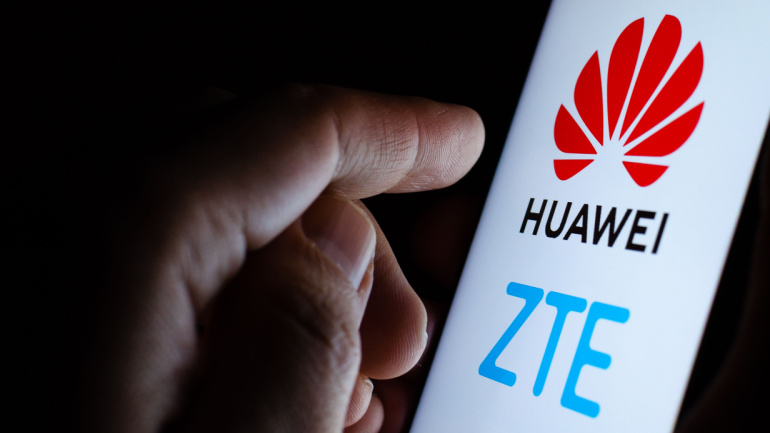Nokia unveiled specialized, private AI models for the telecom sector to improve network operations and customer service. A coalition of 10 governments agreed on principles for secure 6G networks. IBM and the GSMA have launched a global AI training initiative to bridge the AI knowledge gap among telecom operators. Qualcomm’s Snapdragon X80 modem chip introduces 5G-Advanced support with up to 10 Gbps speeds and six-carrier aggregation.
Global mobile core network market’s slowest quarterly growth since 2017, according to Dell’Oro, is attributed to tough political and economic conditions and slower 5G network rollouts. Distinctively unstable trends mark the sector, with Huawei holding the lead in provider rankings for Q3.
Nepal’s move into 5G has hit a deadlock due to geopolitical tensions, resulting in halted trials. Interestingly, at the heart of the issue is the importation of necessary equipment from Chinese firms amid corruption allegations and international contentions over security. The telecom industry in Nepal fears this impasse may set back tech enhancements, revealing global tensions’ significant impact on local infrastructures.
The Federal Communications Commission (FCC) has set its sights on reshaping the allocation of approximately $9 billion earmarked for rural 5G expansion. FCC Chairwoman Jessica Rosenworcel announced the move, emphasizing the need to bridge the digital divide across underserved areas of the United States.
Reports indicate covert Huawei involvement in the establishment of chip plants to bypass US export controls. These allegations stem from Huawei’s shift to predominantly Chinese suppliers due to trade restrictions, despite their struggle to match the performance of manufacturers like TSMC and Samsung. Amidst ongoing US-China tensions, this move could potentially provoke a stronger stance from the US against sanction violators, reshaping the telecommunications landscape.
The US and India strengthen their strategic partnership, focusing on 6G research, Open RAN, and semiconductors, while collaborating on technology sharing, co-development, and co-production opportunities between industry, government, and academia.
The EU’s messaging around “high-risk” vendors hints at a potential ban on Huawei and ZTE, urging members to accelerate their removal from 5G networks. As the EU Commission pushes for swift implementation, the debate on security risks and dependencies intensifies.
Orange to cut down energy use by deploying 5G Orange claims to be on a mission to alleviate strain on Europe’s energy networks. The corporation asserts that it can save energy and is doing this by introducing the latest generation of technology, in particular 5G. All of this effort is being applied in order for the company to achieve net-zero carbon emissions by 2040. Deploying 5G is cited as a crucial component of this undertaking. Read more at: https://tinyurl.com/4zmnpfce FCC bans all Huawei and ZTE equipment The sale and import of equipment produced by Chinese manufacturers Huawei and ZTE has been banned by the US Federal Communications Commission (FCC). Dahua Technology and Hangzhou Hikvision Digital Technology, as well as radio equipment producer Hytera Communications Corp., are also banned. According to the FCC, these suppliers pose a threat to national security in the United States, and their technology may potentially be…
Google and Oracle experience data center outages due to UK heatwave Following a record-breaking heat wave that blasted Britain on Tuesday, data centers used by Google and Oracle Corp. have both failed. Both businesses attributed the disruptions to “cooling systems” issues. Both Google and Oracle have shut down equipment, causing interruptions to their cloud services, in order to prevent irreparable damage to physical components and thereby creating a lengthy outage. On Tuesday, when the outages started to spread through London, temperatures in the UK reached 40 degrees Celsius (104 degrees Fahrenheit). Read more at: https://tinyurl.com/3t2xm2a5 FBI and Verizon Network enter $400 million contract Verizon and the FBI have signed a new $400 million deal, with the telecoms giant assisting to increase the data bandwidth for the law enforcement organization. New features include a worldwide Virtual Private Network and faster data transmission rates using 4G and 5G wireless connectivity within the…
Ericsson has ceased operations in Russia in order to comply with international sanctions imposed in the weeks following Russia’s invasion of Ukraine. Nokia, too, has announced its intention to abandon the Russian market, having already ceased supplies and begun to relocate R&D out of the country. However, Nokia intends to continue supporting the maintenance of current equipment on humanitarian grounds. Over the years, Ericsson has collaborated with a number of Russian mobile providers. The company recently formed a strategic relationship with MTS to create private 5G networks, as well as the testing and implementing next-generation technology with the operator. Ericsson has said that it will indefinitely cease relevant operations with Russian clients. The vendor also stated that it is in discussions with customers and partners, and that staff in Russia have been placed on paid leave. In Russia, Ericsson employs around 600 people. In a stock market notification…












